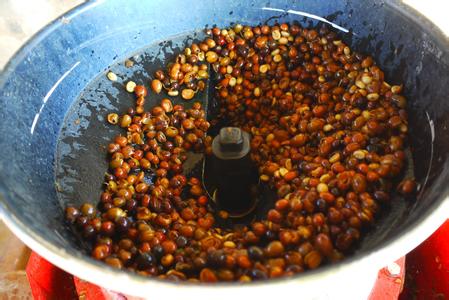Description of the characteristics and Flavor of washed Yejia Coffee beans A brief introduction to the grinding scale of taste treatment
Description of the characteristics and Flavor of washed Yejia Coffee beans A brief introduction to the grinding scale of taste treatment
Sunburn Yega Chuefei Aretha Aricha G1 is currently the highest grade raw bean in Ethiopia. With our second hand selection, the high quality raw bean has a cleaner and smooth taste. It has reached a high score of 95 on the international cup testing website Coffee Review, which is really worth a try.
Gedeo Zone is located 4 kilometers west of the city of Yegashifi and is planted at an altitude of 1950-2100 meters. Coffee from November to February each year is sent to the Kebel Aricha coffee processing plant owned by Surafel Birhanu for processing and sale. The Ethiopian Yega Snow Coffee Aricha coffee treated by the sun comes from the Kebel Aricha producing area and is owned by Surafel Birhanu. The coffee is grown on about 650 to 700 small farms in the Gedeo district, 4km west of the town of Yega. After ripening, the coffee fruit is picked and sent to Kebel Aricha for processing, sorting and drying. The first few days of the sun
The refined washing treatment of raw coffee beans can be traced back to the mid-18th century. In the process of purification, the pulp of the red coffee fruit is first removed, and then the residual mucous membrane on the inner pericarp is removed by using a fermentation tank, followed by cleaning and drying.
Sun: after the beans are picked, they are directly exposed to the sun for about 3 weeks. During this process, the pulp will ferment, and the beans will absorb the flavor produced during the fermentation process, so the flavor is relatively rich. In the process of fermentation, the seeds are not consumed too much, that is, the sugar of coffee beans, which can produce rich aroma. Therefore, the aroma and flavor of the sun are rich.

Important Notice :
前街咖啡 FrontStreet Coffee has moved to new addredd:
FrontStreet Coffee Address: 315,Donghua East Road,GuangZhou
Tel:020 38364473
- Prev

Yega Shefi G1 Jiedip production area Asha treatment plant cooperative introduction
Yega Shefi G1 Jiedip production area Asasa processing plant cooperative introduction with coffee entrance, flowers bloom this sentence to describe the most appropriate, just like flowers stimulate taste buds and nasal olfactory cells comfortable feeling In addition to the floral fragrance, the body is delicate and mellow, like silk massage in the mouth, wonderful touch. At present, many coffee chemists have begun to study the microclimate and water around Yejia Shefei
- Next

A brief introduction to the flavor of Kenyan hand-roasted coffee
A brief introduction to the flavor description of Kenyan hand-roasted coffee, although the classification is different, it does not mean that their flavor will be good or bad. And Kenya's unique double fermentation water washing method will improve the original acid quality and cleanliness again. The fine products we usually drink in Kenya are sl28 and sl34 varieties, with rich berry tonality, solid body,
Related
- Detailed explanation of Jadeite planting Land in Panamanian Jadeite Manor introduction to the grading system of Jadeite competitive bidding, Red bid, Green bid and Rose Summer
- Story of Coffee planting in Brenka region of Costa Rica Stonehenge Manor anaerobic heavy honey treatment of flavor mouth
- What's on the barrel of Blue Mountain Coffee beans?
- Can American coffee also pull flowers? How to use hot American style to pull out a good-looking pattern?
- Can you make a cold extract with coffee beans? What is the right proportion for cold-extracted coffee formula?
- Indonesian PWN Gold Mandrine Coffee Origin Features Flavor How to Chong? Mandolin coffee is American.
- A brief introduction to the flavor characteristics of Brazilian yellow bourbon coffee beans
- What is the effect of different water quality on the flavor of cold-extracted coffee? What kind of water is best for brewing coffee?
- Why do you think of Rose Summer whenever you mention Panamanian coffee?
- Introduction to the characteristics of authentic blue mountain coffee bean producing areas? What is the CIB Coffee Authority in Jamaica?

